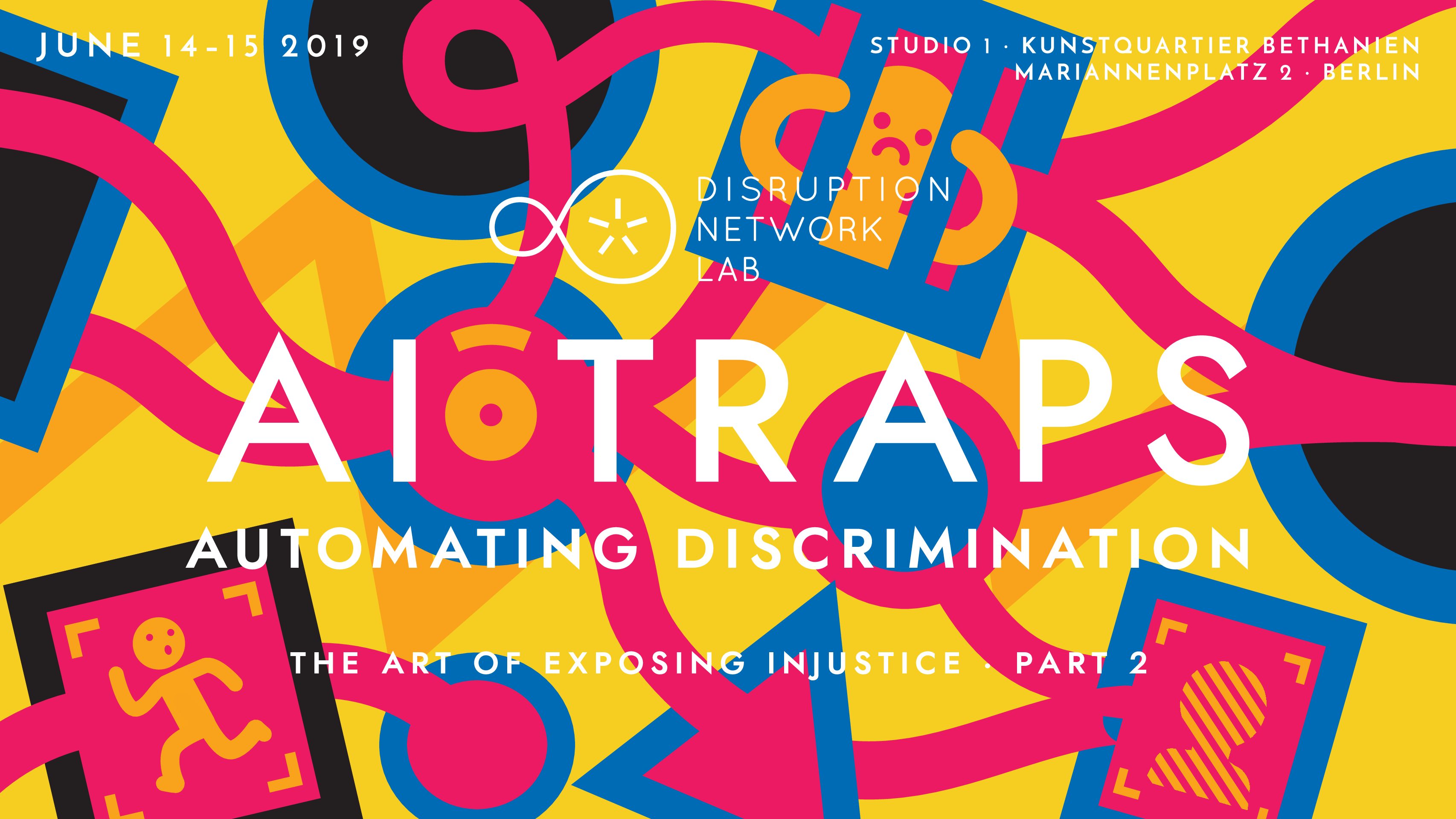AI Traps – Automating Discrimination
The Art of Exposing Injustice
16:15 – 19:00
June 14, 2019
Kunstquartier Bethanien, Studio 1
Mariannenplatz 2, Berlin
The 16th conference of the Disruption Network Lab takes a look at how AI & algorithms reinforce prejudices and biases of its human creators and societies, and how to fight discrimination.
Our collaborator Adam Harvey will speak on the panel “The Tracked & the Invisible: From Biometric Surveillance to Diversity in Data Science” together with Sophie Searcy, a Senior Data Scientist at Metis. Adam Harvey will present a very concrete art and research project, investigating the ethics, origins, and individual privacy implications of face recognition image datasets and their role in the expansion of biometric surveillance technologies. He will present the latest developments of his project megapixels.cc, showcasing new research on how images posted to Flickr have been used by academic, commercial, and even defense and intelligence agencies around the world for research and development of facial recognition technologies.
Drawing on her teaching work on AI ethics and cultural diversity, Sophie Searcy will discuss the fundamental problems underlying the design and implementation of AI and consider how those problems impact to real-world case studies.
Maya Indira Ganesh, Research Coordinator for our VW Stiftung project, will speak on the panel “AI for the People: AI Bias, Ethics & The Common Good” together with Slava Jankin, Professor of Data Science and Public Policy at the Hertie School of Governance. Maya will focus on the seductive idea that we can standardise and manage well-being, goodness, and ethical behaviour in this algorithmically mediated moment. Her talk will examine typologies of policy, computational, industrial, legal, and creative approaches to shaping ‘AI ethics’ and bias-free algorithms; and critically reflect on the breathless enthusiasm for principles, boards and committees to ensure that AI is ethical.
Slava Jankin will reflect on how machine learning can be used for common good in the public sector, focusing on Artificial Intelligence and data science in public services and reflecting on possible products and design implementations.

